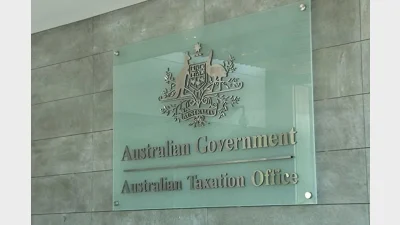(March-2003) Honesty is the best policy in super
For two years now, the Australian Prudential Regulation Authority (APRA) has had a direct power to disqualify someone who has contravened superannuation law or who is otherwise not a “fit and proper person” to be a trustee, investment manager, custodian, or a responsible officer of a corporate trustee, investment manager or custodian. APRA has recently been active in this area, making it clear it is acting under this power.
There is, of course, another disqualification rule, one that has been in the SIS Act from its start in 1993 and which automatically disqualifies a person from being a trustee, investment manager or custodian if the person has ever been convicted of an offence involving dishonest conduct, anywhere in the world. In nearly 10 years, relatively few cases of this rule in action have come to light, perhaps because few people with criminal convictions become involved with super funds, or because those who have become involved have concealed or simply forgotten that they have a criminal past.
The rule is automatic
If you have a conviction at any time in your past for an offence involving dishonesty, you may never be a trustee, investment manager or custodian. You may, however, apply to APRA to have the automatic disqualification lifted, provided the offence for which you were convicted did not involve “serious dishonest conduct”. APRA will look at a number of factors, including the offence for which you were convicted, how long ago it happened, your age when you were convicted, the orders made by the court and any other relevant matter. If APRA is then satisfied that you are “highly unlikely to be a prudential risk to any superannuation entity”, it must waive your disqualification. If APRA refuses to do so, you can appeal to the Administrative Appeals Tribunal.
It is clear, however, from the few cases which have gone to the tribunal, that APRA and the tribunal take a very serious view of these rules. Only a full and frank disclosure and proper expressions of remorse will secure a waiver of disqualification.
This is illustrated by the most recent case, decided by the tribunal in December last year. The case involved a director of a mortgage management company that expected to enter into management agreements with superannuation entities in the future. The problem was that the particular director had, some years previously, pleaded guilty to a number of dishonesty offences involving mobile phones and Telstra accounts. He was fined $2000 without a conviction being entered. So it was necessary to apply for a waiver of the director’s automatic disqualification. APRA refused his application, and so, on appeal, did the tribunal.
Everyone agreed that his offence did not involve “serious dishonest conduct”. What he had done was to obtain mobile phones for his then employer in a dishonest manner, through a close friend who worked for Telstra. He had also dishonestly used a Telstra account to pay his phone bills, and had obtained a cheque from Telstra by closing an account, knowing he was not entitled to the money.
Prudential risk?
Did this make the applicant a continuing prudential risk? Or, to put the question more correctly, could APRA and the tribunal conclude, on all the evidence, that he was “highly unlikely to be a prudential risk” to superannuation entities?
As to the offence itself, the applicant blamed his friend for instigating the dishonest conduct. He appeared, even before the tribunal, to show little appreciation of his own culpability. He seemed to believe that he was only “technically guilty”, having pleaded guilty in order to escape a conviction being recorded and to minimise legal costs. True, the offences involved relatively small amounts of money, but there was no doubt his conduct had been dishonest.
The applicant was 32 and a qualified accountant when he committed the offences, married with children, and occupying a responsible position with a large company. There was no doubt he should have known better.
The applicant was supported by the managing director of his former employer, and fellow directors of his present company. Unfortunately, it emerged that he had failed to disclose even to them the full details of what he had done.
The tribunal felt that his lack of frankness and inability to accept his share of responsibility for knowingly being involved in dishonest conduct, and his failure to fully disclose his disqualified status to his colleagues, raised concerns about his wisdom, good judgement and forethought. Further, the fact that he saw his problem as having arisen from naivety, immaturity and misplaced trust in a friend placed too little emphasis on his age at the time of the offence and his professional qualifications and experience. Finally, in saying that since the conduct leading to the offences he now checked everything carefully, the applicant still failed to recognise that he had, when the offences were committed, engaged in dishonest conduct, and that that is not a matter which any amount of careful checking would avoid.
If he did not accept that he was wrong in succumbing to the temptation put up by his friend, how could it be concluded that he was “highly unlikely” not to succumb to temptation in the future?
— Brian Egan is a freelance commentator on superannuation, tax and corporations law matters, and a principal of Sirius Information Services.
Recommended for you
The responsible investment body is warning that a one-size-fits-all ESG framework mirroring those in the UK and the EU could do more harm than good.
Australian super funds are monitoring the US closely as President Donald Trump increasingly intervenes in corporate policy, moves that are reverberating through global markets and prompting reassessments of portfolio risk.
Industry fund HESTA has filed an appeal against an ATO decision on tax offsets from franking credits, with the Australian Retirement Trust set to file a similar claim soon.
The latest superannuation performance test results have shown improvements, but four in 10 trustee-directed products continue to exhibit “significant investment underperformance”, warns APRA.











